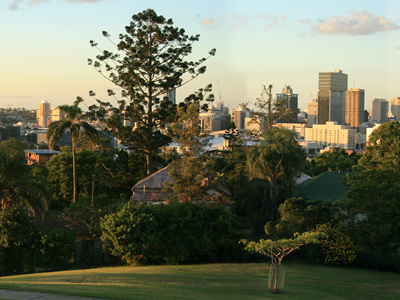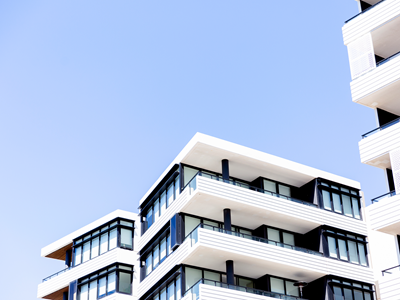Rentvesting allows you to get a foot on the property ladder through investment, while reaping the rewards of loving where you live.
Renting in your ideal suburb but can't afford to buy there (just yet!)? Don’t worry, you're not alone. Increasing house prices mean growing numbers of people are in the same boat. But that doesn't mean you have to rule out buying a property completely. Rentvesting is an option that offers the perfect solution – the best of both worlds.
Rentvesting allows you to get a foot on the property ladder through investment while reaping the rewards of loving where you live. Typically, rentvesters live in a rental property in their desired location and buy affordable property elsewhere to rent out.
So, what are the benefits of doing it?
Flexibility
Renting in your desired location allows you the flexibility to move around at the end of each tenancy agreement should you so wish. This freedom means you can experience living in different areas without the costs associated with buying and selling.
Tax benefits
There are multiple tax benefits to be had with owning an investment property. Depending on your situation, you can claim tax deductions, claim holding costs and, in some instances, claim some of the initial buying costs. This includes stamp duty, conveyancing, and lending fees.
In the longer term you may be able to claim depreciation on the building or assets.

Cost saving
Renting means that you’re not responsible for any maintenance or safety costs associated with your rental property. Neither are you responsible for paying any council rates or any body corporate fees.
While you will need to cover some of these costs as the landlord yourself, many are tax deductible.
Lifestyle
There are few things more important than loving where you live. And with rentvesting you can remain in love.
Living near all your desired amenities means that you’re not sacrificing your lifestyle in any way. Rentvesting ticks all the boxes, whether it’s cutting down on travel time to work, being located near desired schools or having easy access to the best coffee in town.
Early investment reaps rewards
Buying a property in a more affordable suburb not only gets you on the property ladder sooner but it also enables you to invest in a high growth area. Without emotional attachment it’s easier to make a strategic decision.
A suburb with new transportation links or where major services are being developed is guaranteed to be a worthwhile investment. As the area becomes increasingly appealing, your property will be in demand by tenants. In the longer term, your property value will likely increase.

Building wealth
Your rental income will go some way in covering some of the costs of your mortgage. In some instances, you may even make a profit. Regardless, your investment will likely gain in value each year, providing you with equity to use for purchasing your dream home down the track.
Should I invest in an apartment, townhouse, or a freestanding house?
When it comes to your investment, it’s important to think about what type of property is going to work best for you both in the short and long term. Apartments, townhouses, or freestanding homes all have their own advantages. So, what are they?
Townhouses
Townhouses are generally cheaper than houses but more expensive than apartments, particularly those in more in demand areas. While you own the townhouse dwelling, the land is shared with other people, so you’ll have to pay body corporate fees and abide by the rules and restrictions that they impose.
Body corporate fees commonly cover the repair and maintenance of shared areas and the amount you pay will be dictated by things such as the size and age of the building. The bonus of body corporate is that it minimises work for you and offers peace of mind that the building is being maintained to a certain standard.
Townhouses usually experience the same capital growth as an apartment but less than a house.
Apartment
Like townhouses, apartments are a cheaper option than houses, particularly if you’re looking to invest nearer the city or main hubs. Investing in these areas is likely to attract a high level of tenants, and consequently, return a high rental income.
As with townhouses, apartments come with body corporate's who look after insurance, maintenance, and upkeep of the building. Apartments are a great way to maximise rental income while minimising expenses.

Houses
As a rule of thumb, houses tend to increase in value more so than apartments or townhouses, so they are a solid way of building wealth.
While investing in a house can be more costly in terms of maintenance, and will likely require a bigger initial outlay, there are many advantages to investing in a home. Similarly, with your own home, you can make changes (within the limits of the law) to the property to further raise its value over time, whether that’s extending or simply changing the façade.
Things to think about before investing in property
• What’s your budget?
• Who’s your target market?
• What’s more important to you – a higher rental yield or long-term capital growth?
• How much maintenance are you willing to pay for vs do yourself?
• What’s your long term goal?
Whatever investment path you choose to take, one thing's for sure. You'll be setting yourself up today for a wealthier tomorrow.